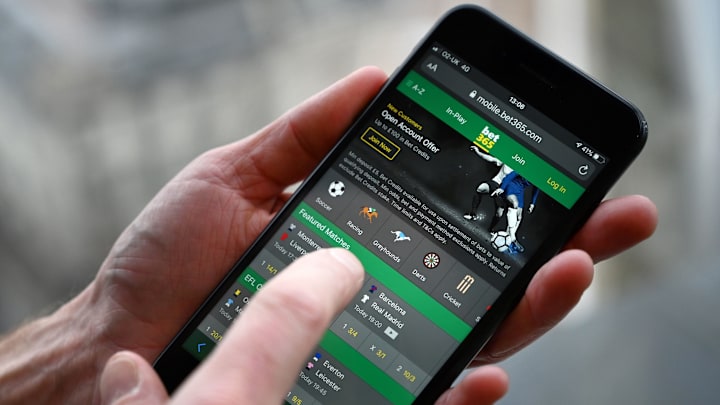North Carolina bettors are eagerly awaiting the launch of legal online and mobile sports betting in March. The fun of sports betting has been realized in the vast majority of US states at this point, and it makes sense to be excited for the launch in your home state.
But the first step is making sure that your gambling does remain fun. You want sports betting to be something that increases your enjoyment of the games, not something that ends up being detrimental to your health and life.
That's why we've put together a guide on resources and tools that every North Carolina bettor should know about in preparation for the sports betting launch.
- North Carolina Gambling Addiction Resources
- National Responsible Gambling Resources
- How to Identify Problem Gambling
- Responsible Gambling Tips
North Carolina Gambling Addiction Resources
If you or someone you know is struggling with gambling in North Carolina, there are local resources available to offer support:
North Carolina Problem Gambling Program
- Website: moreinfo.org
- Helpline: 1-877-718-5543
- Services: Counseling, support groups, and educational materials.
Council on Compulsive Gambling of North Carolina
- Website: ccgnorthcarolina.org
- Services: Referrals to treatment and support facilities, educational resources.
National Responsible Gambling Resources
National Council on Problem Gambling
- Helpline: 1-800-522-4700
- Website: ncpgambling.org
- Services: Confidential helpline, online chat, text services.
Gamblers Anonymous
- Website: gamblersanonymous.org
- Services: Meeting finder for peer support groups.
GamTalk
- Website: gamtalk.org
- Services: A 24/7 moderated online forum for sharing support and advice.
How to Identify Problem Gambling
Recognizing the signs of problem gambling is the first step to getting help. Here are some indicators to look for in yourself or others to identify potential problem gambling:
- Wagering more money than originally planned, or than you can afford to lose.
- "Chasing losses" by gambling more to try to win back money you've already lost.
- Losing track of time while gambling and spending much longer than expected.
- Feeling stressed or anxious about gambling instead of having fun.
- Gambling to escape problems or relieve negative feelings.
- Feeling like you "must" gamble.
- Gambling at the expense of obligations to your work, school or family.
- Lying to friends or family about gambling activities.
- Borrowing money or selling possessions to gamble.
- Feeling irritable or restless when trying to gamble less.
Responsible Gambling Tips
To make sure your gambling experience stays responsible and fun, considering following some of these guidelines:
- Set Spending Limits: Decide how much you can afford to lose and stick to it.
- Watch Your Gambling Habits: Keep a diary to track how often and how much you gamble.
- Gamble with "Fun Money": Only use money that you won't miss for essential expenses.
- Avoid Gambling as an Escape: Don't use gambling as a way of hiding from other problems in your life.
- Have Other Hobbies: Ensure gambling isn't your only form of entertainment.
- Accept Losses: View losses as the cost of entertainment, not something to recover.
- Know Your Bets: Understand the gambling games you're playing, including the types of bets.
- Take Regular Breaks: Step back regularly to assess your gambling behavior.
- Use the Tools: Make use of betting sites' limits and self-exclusion features.
- Avoid Substance Use while Gambling: Stay clear-headed to maintain good judgment.
- Recognize Triggers: Be aware of what prompts you to gamble impulsively.
- Ask for Help: You can ask your friends and family for help, and there are also many professional resources (listed above) where you can find personal help.
